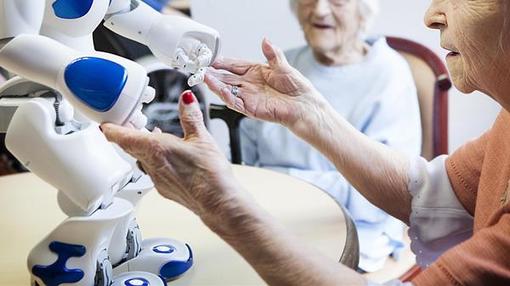An elderly lady in an electric wheelchair rounds the corner of a hallway in Tokyo’s Haneda Airport, weaving between travelers rushing to departure gates and dodging carts stacked high with luggage. The wheelchair looks like others except that its passenger isn’t looking where she’s going — she’s studying her ticket. The wheelchair is navigating on its own.
The WHILL NEXT wheelchair, which is undergoing testing at Haneda, is just one of the recent advances in autonomous vehicles and robotics that hold promise to improve the lives of the elderly and the infirm. Other developments include robots to dispense medication, fetch food and even provide companionship. But some health care experts ask: How much will these self-driving vehicles and robotic aides cost and who’s going to pay for them?
WITH THE RIGHT CONTROLS, I THINK [AUTONOMOUS WHEELCHAIRS] COULD BE HELPFUL BECAUSE THEY MAY ALLOW PEOPLE TO LIVE ALONE.
DR. R. SANDERS WILLIAMS, PRESIDENT, GLADSTONE INSTITUTES
The trend is gaining momentum at a critical time. In Japan, a country driving many of the developments in the field, those 65 and older already comprise 26.7 percent of the population, an uptick of 3.7 percent in the past five years, according to a 2015 census. The U.S. is also aging; the Population Reference Bureau shows that by 2060, nearly one-quarter of Americans will be in the retiree demographic, when a loss of mobility can mean a terrifying loss of independence and dignity.
Engineers and roboticists want to change that — and take the tech for seniors even further. A driverless wheelchair developed by the Singapore–MIT Alliance for Research and Technology (SMART) is helping patients navigate Changi General Hospital in Singapore without adding to the workload of a nursing station. Daniela Rus, director of MIT’s Computer Science and Artificial Intelligence Laboratory, wanted to prioritize the development of this vehicle and two others at MIT’s Cambridge campus after visiting an understaffed retirement community in the U.S. With autonomous help, Rus tells OZY, “the elderly will not need an aide to take them places.”
Sourced through Scoop.it from: www.ozy.com








Leave A Comment